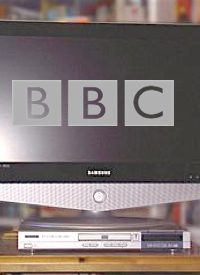
The British government has given the nod for abortionists to hawk their services on the “telly.” As reported by the London Telegraph, “Private clinics which carry out abortions will be allowed to advertise on television and radio for the first time, under new rules.” The Telegraph reported that with recently approved recommendations, “drawn up by the Broadcast Committee of Advertising Practice, which regulates TV and radio commercials, dozens of independent hospitals carrying out abortions will be able to advertise their services to consumers.”
Under previous rules, only not-for-profit abortion clinics could air advertisements, which boiled down to a single organization, Marie Stopes International. That “charity” aired just one advertisement last year, which resulted in more than 4,500 complaints from UK citizens.
According to the Telegraph, more than 35 private clinics throughout England perform abortions, with Sally Tabor, a spokeswoman for Independent Healthcare Advisory Services, saying that while the new rules represented a “welcome change,” not every abortion provider would produce advertisements. “We would definitely welcome this,” she said. “Clearly hospitals want to raise awareness of services they provide, but some might choose not to advertise because of the sensitivity of the service — we have seen the problems in other countries when abortion clinics come under attack. Each provider will need to think this through very carefully.”
The Telegraph noted that pro-life groups around England have sounded their displeasure over the move, “accusing advertising authorities of ‘trivialising’ human life by treating terminations as a consumer choice like cars or washing powder.” One pro-life spokesperson, Joanne Hill from the UK organization LIFE, voiced her “utter disbelief” at the recommendations, saying that to “allow commercial abortion providers to advertise on TV, as though they were no different from car companies or detergent manufacturers, is shocking and exceeds the bounds of responsible advertising.” She added: “By suggesting that abortion is yet another consumer choice, human life is trivialised and the distress and heartache faced by a woman making this irrevocable decision, which ends the life of her child, is glossed over.”
Even as the strictures on advertising are apparently being eased, one pro-life group, Right to Know, has been exposing the aggressive efforts of abortion providers to increase their business through what the pro-life group calls “hard-sell” tactics to persuade women to have abortions.
A recent report by the group targets “major abortion providers for recruiting business development managers who are asked to promote the growth of the businesses, and generate increased income,” reported the Telegraph. The report, said the paper, includes financial statements from one abortion provider “which list increases in the number of terminations as significant goals achieved.”
Pro-life groups have also been pushing for changes to UK abortion laws, which would require that all women considering abortion are offered counsel by someone other than the abortion provider. One such an amendment to a health bill making its way through parliament has been proposed by MP Nadine Dorries, who told the Telegraph: “Ultimately the woman should have the right to make her own choice, but often they are not given all the information they should be given regarding the abortion process.” She noted that marketing techniques used by abortion providers “are so slick that many women are coming out of the process feeling as though they were rushed through it and given no choice.”
Paul Tully of the pro-life Society for the Protection of Unborn Children (SPUC), claimed that the Advertising Standards Authority, a self-regulatory arm of the advertising industry, has a “long pro-abortion track record,” adding that the industry itself “is displaying a bias to support the devious and sleazy agenda of abortion providers, who have ideological and commercial interests in promoting abortion.”
Tully challenged Jeremy Hunt, Britain’s culture secretary, to use his powers under the Communications Act to force the country’s official advertising regulators “to ban these adverts.”
LifeNews.com reported that without television and radio commercials, abortion businesses have relied on ads in magazines and alternative newspapers, as well as ads on taxis and buses. “Last year 29,000 people signed a SPUC-organized paper petition to the prime minister against a proposal to allow abortion agencies to advertise on television and radio,” reported the pro-life news site.
The Christian Institute noted that in 2010, “189,574 abortions were carried out on women residing in England and Wales. In 2000 175,542 terminations were recorded — more than 14,000 less.”



